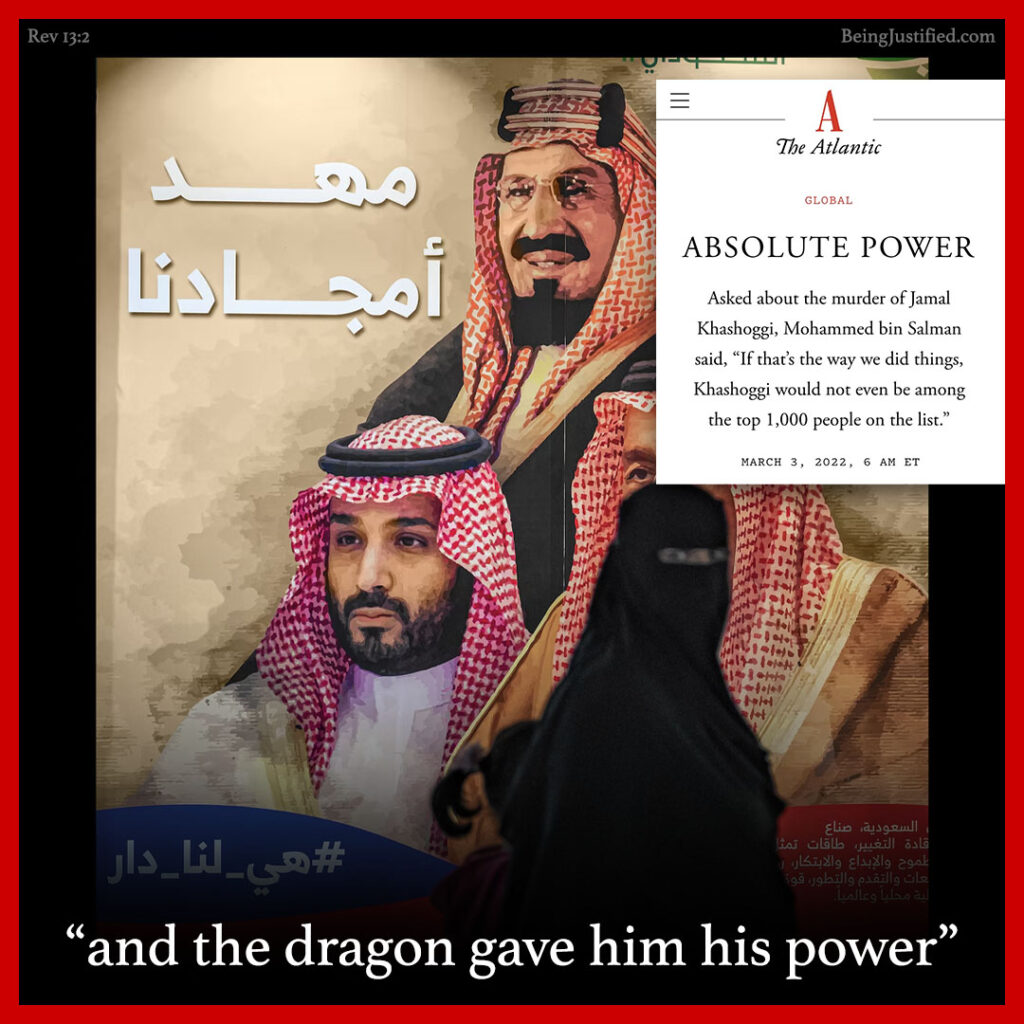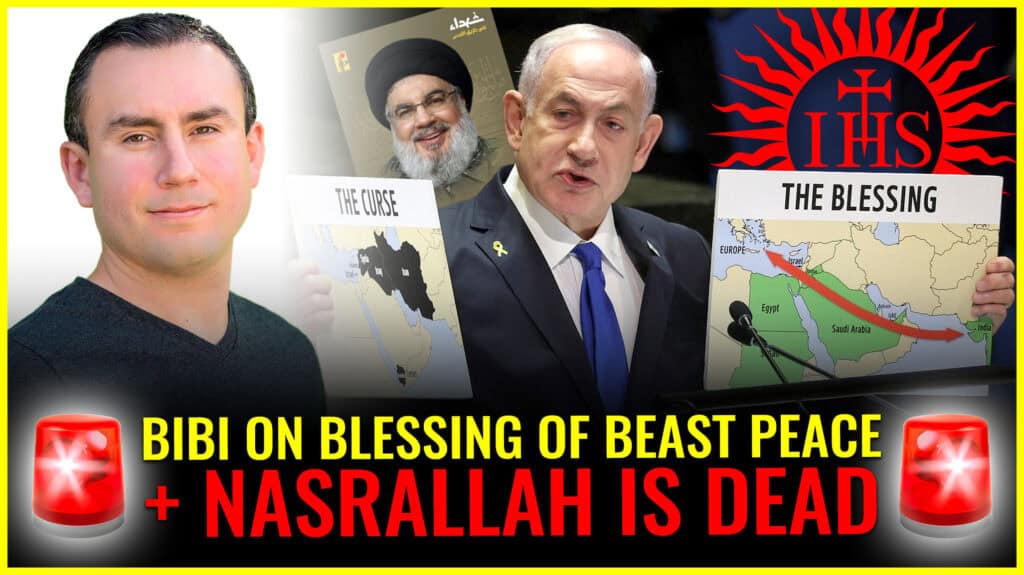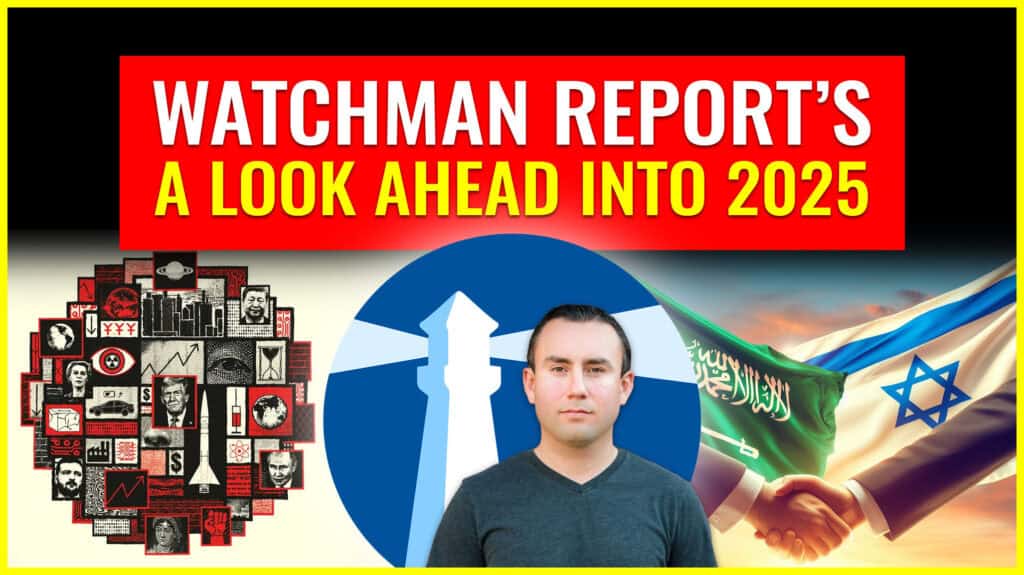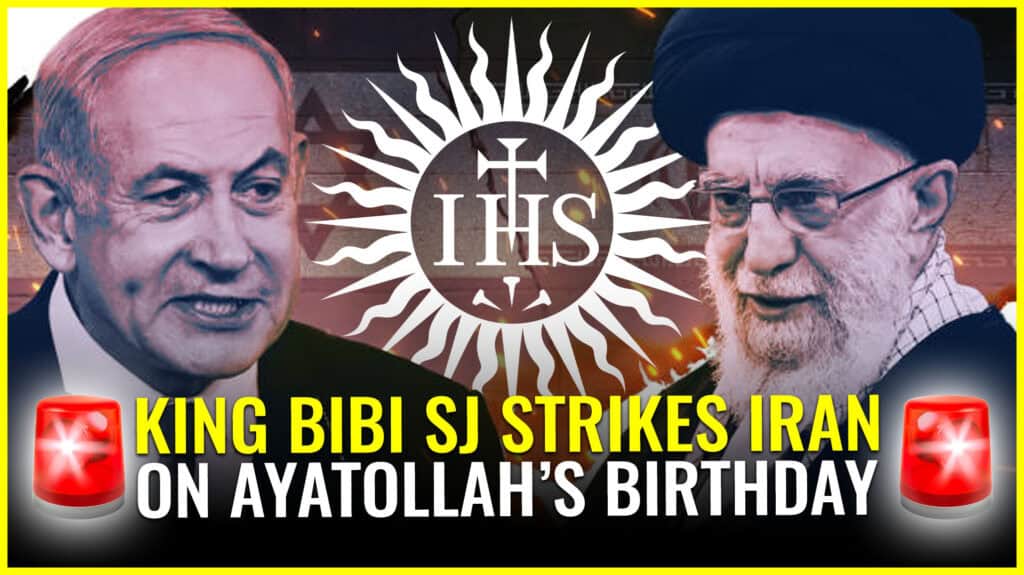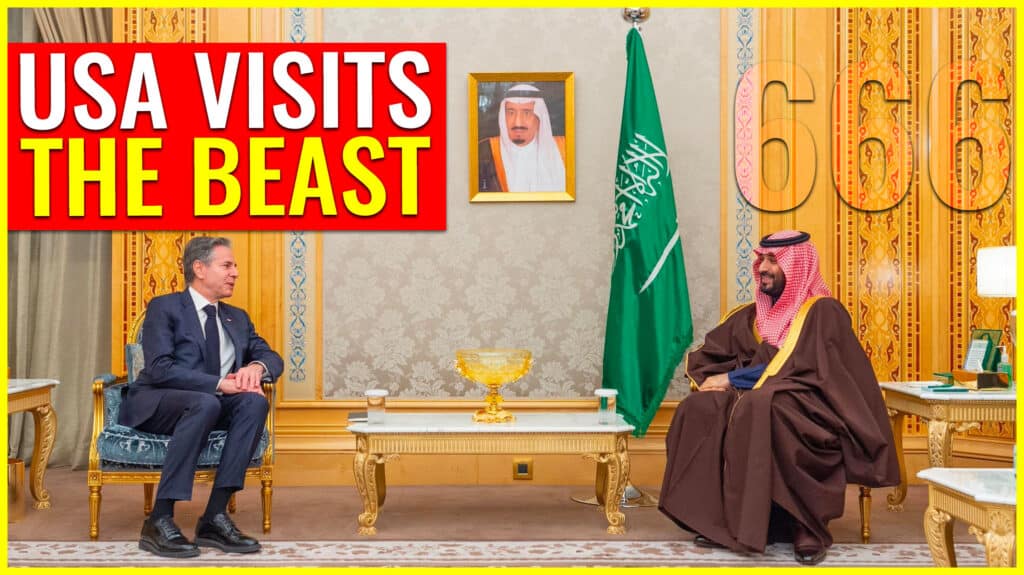Scripture to consider before the news:
“And he shall confirm the covenant with many for one week: and in the midst of the week he shall cause the sacrifice and the oblation to cease, and for the overspreading of abominations he shall make it desolate, even until the consummation, and that determined shall be poured upon the desolate.”
The prince of the covenant confirms a covenant with many for one week and that is what starts the last days and more specifically the final prophetic 70th week for the nation of Israel before the second coming of the Lord Jesus Christ.
We are getting there.
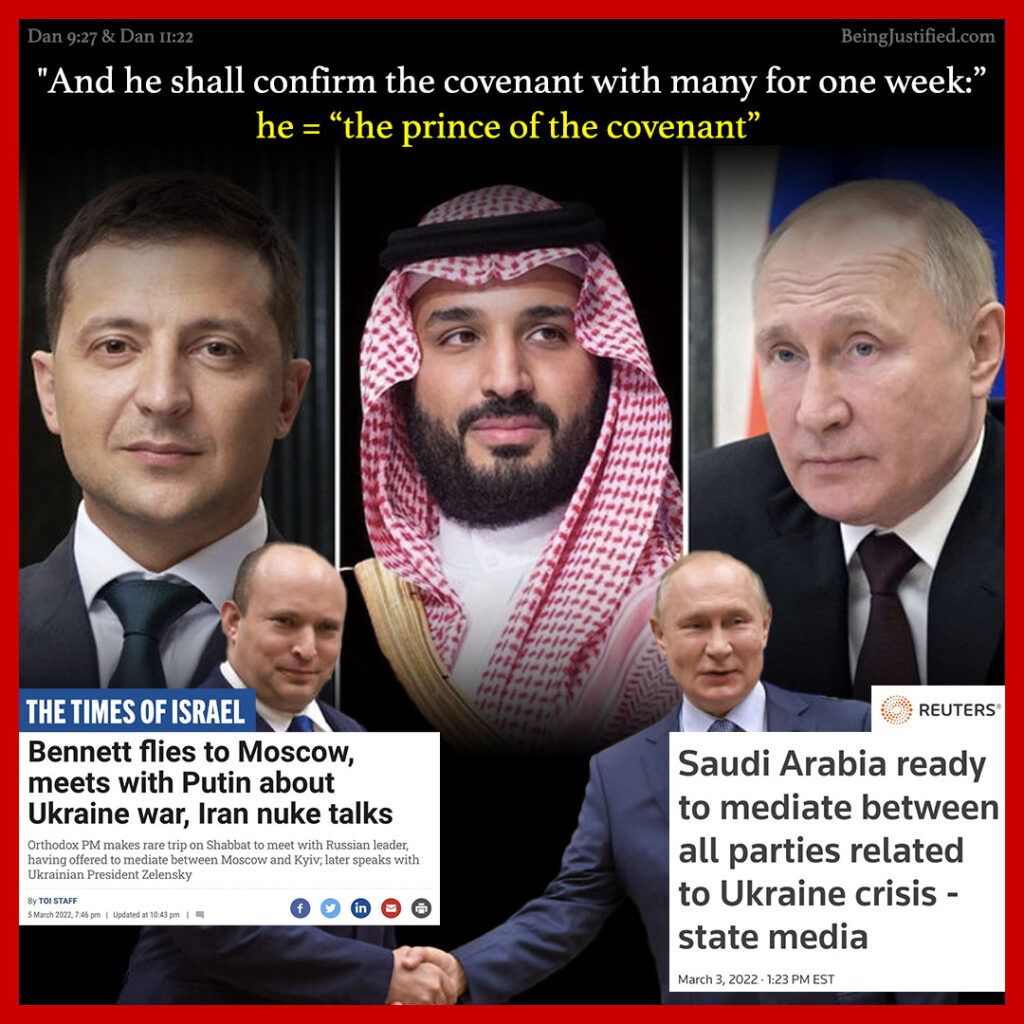
Now unto the news: Saudi Arabia ready to mediate between all parties related to Ukraine crisis.
Saudi Crown Prince Mohammed Bin Salman told Russia’s President Vladimir Putin in a phone call on Thursday the kingdom is ready to exert all efforts to mediate between Russia, Ukraine and all parties related to the ongoing Ukrainian crisis, state media reported.
The prince reiterated the kingdom’s keenness on maintaining the stability of oil markets and stressed the OPEC+ role in keeping its balance, adding it is necessary to maintain the OPEC+ agreement, state media added.
In related news:
Bennett flies to Moscow, meets with Putin about Ukraine war, Iran nuke talks.
Orthodox PM makes rare trip on Shabbat to meet with Russian leader, having offered to mediate between Moscow and Kyiv; later speaks with Ukrainian President Zelensky.
Prime Minister Naftali Bennett traveled to Moscow on Saturday for a meeting with Russian President Vladimir Putin to discuss the war in Ukraine.
The meeting at the Kremlin lasted for 3 hours.
“The prime minister took off for Moscow early Saturday morning, after the conversation between the leaders last Wednesday,” the Prime Minister’s Office said in a statement
Kremlin spokesman Dmitry Peskov said the two discussed “the situation around Ukraine,” according to Russian news agencies. The statement from the Prime Minister’s Office did not mention Ukraine or Russia’s invasion of the country.
An Israeli official diplomatic source said the meeting was coordinated with the United States, Germany, and France, “in continuous dialogue with Ukraine.”
It was Putin’s first sit-down with a foreign leader since the day Russian forces invaded Ukraine last week.
The source said Bennett spoke with Putin about “the situation of Israelis and the Jewish communities as a result of the conflict” and the ongoing talks in Vienna to restore the 2015 Iran nuclear deal, which Russia is a signatory to.
“The prime minister expressed the position of Israel, which is opposed to a return to the nuclear deal,” the source said.
Earlier Saturday, Russia said it would demand guarantees from the US before backing the Iran nuclear deal, citing the current wave of Western sanctions against Russia.
There was no immediate comment on any link between the new Russian position and Bennett’s visit.
Start learning the scriptures according to the commandment of the everlasting God for free with our new online school. Just go to Being Justified dot com slash school to enroll today.
In other news:
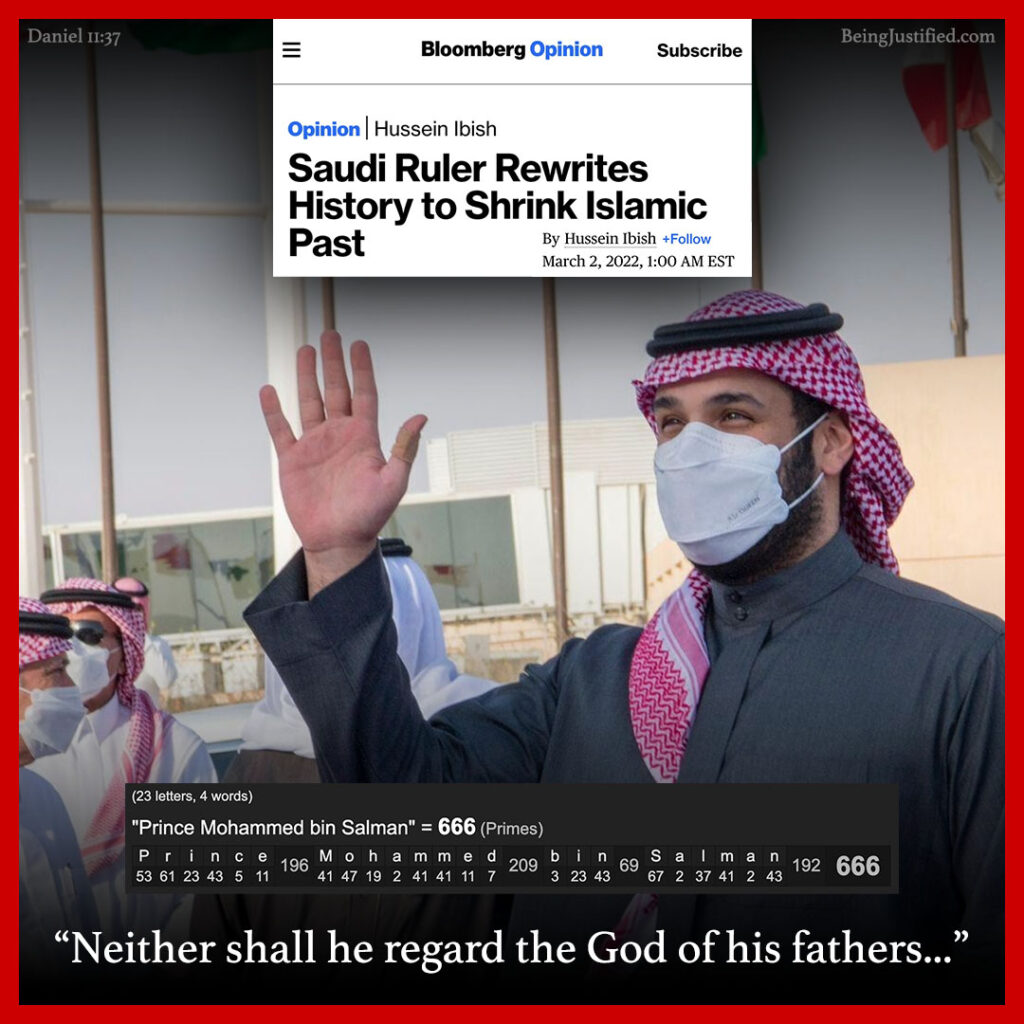
Saudi Ruler Rewrites History to Shrink Islamic Past.
Scripture to consider:
“And the king shall do according to his will; and he shall exalt himself, and magnify himself above every god, and shall speak marvellous things against the God of gods, and shall prosper till the indignation be accomplished: for that that is determined shall be done. Neither shall he regard the God of his fathers, nor the desire of women, nor regard any god: for he shall magnify himself above all.”
We are seeing this with how MBS is modernizing the kingdom.
Now unto the news.
Few countries have ever undergone the kind of dramatic transformation underway in Saudi Arabia. In just a few years, Crown Prince Mohammed bin Salman has thoroughly upended cultural norms and expectations in the Kingdom. Now he’s rewriting the national narrative, sidelining the role of Islam and emphasizing Saudi nationalism, history and the royal family.
Last week the nation celebrated a new holiday, Founding Day. It identifies 1727 as the origin of Saudi Arabia. That directly challenges the traditional narrative, celebrated since the country’s modern founding in 1932, that identified 1744 as the foundational moment.
In 1727, the Al Saud clan captured the Emirate of Diriyah, an exercise in pure political and military power. The 1744 date, by contrast, commemorated on alliance between the Al Sauds and the radical puritanical preacher Muhammed ibn Abdul-Wahhab.
His literalistic and reductive interpretation of Islam, known today as “Wahhabism,” has effectively been the state religion and was the main basis for claims of domestic authority and global Islamic leadership.
That’s all been rapidly jettisoned under Crown Prince Mohammed and his father, King Salman.
As far back as 2016, the feared religious police were stripped of their practical authority over the population. And since MBS became crown prince in 2017, there has been a stunning transformation on women’s rights, gender mixing, public entertainment and the celebration of pre-Islamic Saudi heritage.
There are many factors at play.
Like many other nations, Saudi Arabia is adopting a nationalistic, populist Saudi-first narrative that emphasizes domestic concerns over religious and pan-Islamic issues.
But the centrality of religious authority also needed to go to facilitate a badly needed transition to a post-energy economy. Saudi citizens have to be transformed from wards of the state to wealth-producing citizens. And that can’t be done without greater personal freedom, especially for women now empowered to work, drive and operate with much more independence.
Saudi Arabia has decided to try to elevate tourism and entertainment into the second-largest sector of the economy after oil. Part of this is a drive for domestic tourism, an effort to dissuade Saudis and their cash from leaving the country every time they want to enjoy themselves. But it’s also a pitch for international non-religious tourism. There’s even speculation that alcohol could be legalized in certain places to promote that industry.
To the religious conservatives accustomed to holding sway over social mores, this is all anathema. But they have been dramatically cut down to size. And now even their role in the narrative of national identity is being rapidly obliterated through Founding Day and the rewriting of Saudi history.
The third reason that religion has to be displaced is that this remarkable social liberalization and planned economic diversification is being accompanied by an equally intense political constriction and repression.
Such transformations, especially when imposed by monarchs of traditional societies, have often unleashed forces rulers were unable to contain. Examples of royals who ended up being overthrown in the wake of such changes include Haile Selassie in Ethiopia in 1974 and the Shah of Iran five years later.
In order to contain and limit the threat of political backlash, King Salman and MBS have centralized power and ruthlessly cracked down on dissent.
Saudi Arabia no longer resembles the neo-feudal patronage regime of the past, and of other Gulf Arab monarchies. Power was traditionally dispersed within different sectors of the royal family. Now authority has been concentrated in the hands of the king and the crown prince and a small group of officials and advisers.
Scripture to consider:
“And through his policy also he shall cause craft to prosper in his hand; and he shall magnify himself in his heart, and by peace shall destroy many: he shall also stand up against the Prince of princes; but he shall be broken without hand.”
MBS will cause craft to prosper but 42 months after confirming the covenant with Israel he will be slain with a sword and then Judas will ascend to enter him and he shall stand up against the Lord Jesus Christ, and be broken without hand by the brightness of his second coming.
Lastly in the news: Saudi crown prince says Israel could be a ‘potential ally.’
Scripture to consider:
“Because ye have said, We have made a covenant with death, and with hell are we at agreement; when the overflowing scourge shall pass through, it shall not come unto us: for we have made lies our refuge, and under falsehood have we hid ourselves:”
The scripture from Isaiah will come to pass when Israel confirms the covenant with the prince of the covenant who is also the beast from Revelation and that will begin their final prophetic 70th week. In the middle of the week is when he will break the covenant and destroy the holy people which is Israel in the time of Jacob’s trouble which is also known as “the great tribulation” period.
That prince is Prince Mohammed bin Salman.
Back to the news:
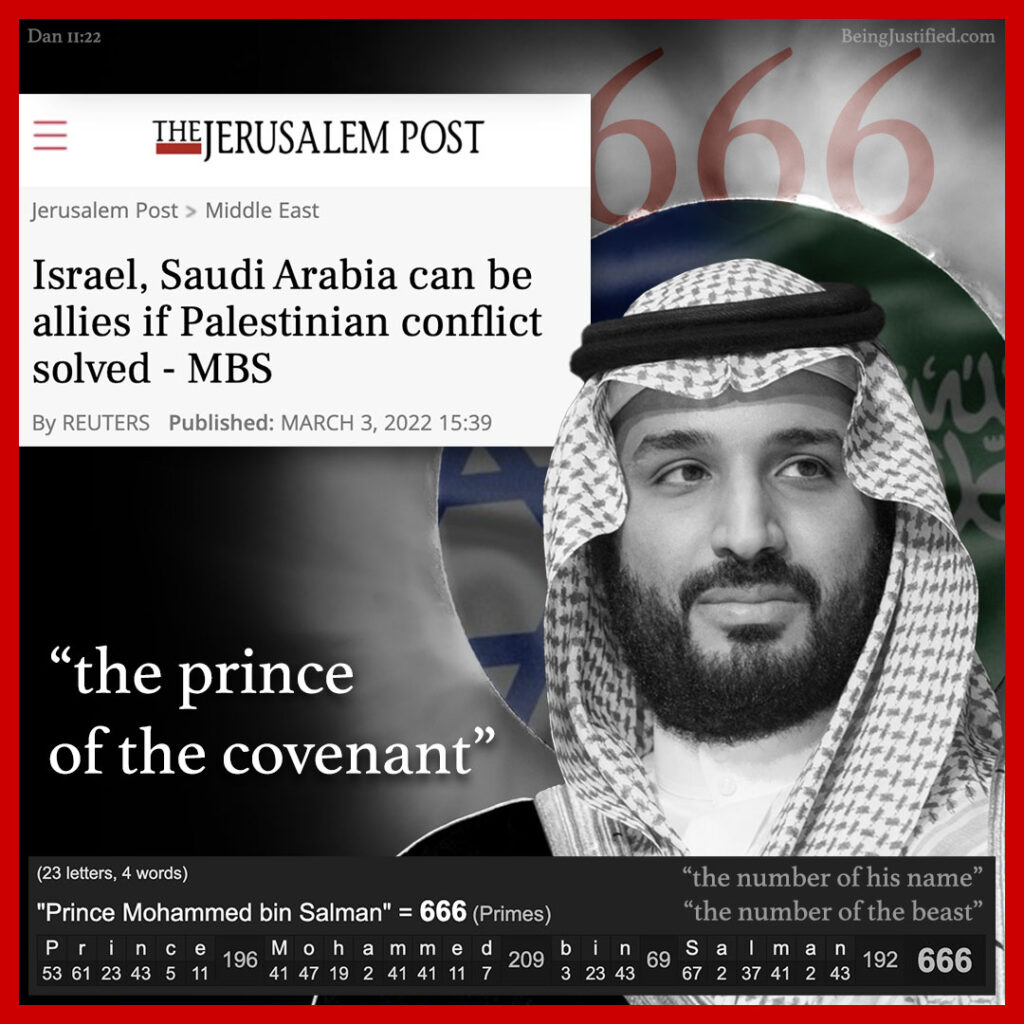
Saudi Crown Prince Mohammed bin Salman has said Israel could be a “potential ally” of Riyadh, in remarks published Thursday.
“For us, we hope that the conflict between the Israelis and Palestinians is solved,” the prince told US monthly magazine The Atlantic, according to remarks carried by the official Saudi Press Agency.
“We don’t look at Israel as an enemy, we look to them as a potential ally, with many interests that we can pursue together,” Saudi Arabia’s de facto ruler said.
“But we have to solve some issues before we get to that,” he added in a rare interview with foreign media.
Saudi Arabia does not have diplomatic relations with Israel.
But in 2020, two of its main Gulf allies — Bahrain and the United Arab Emirates — normalized ties with Israel, becoming the third and fourth Arab states to do so after Egypt and Jordan.
The normalization deals under the US-brokered Abraham Accords angered the Palestinians, who condemned them as a “stab in the back.”
Saudi Arabia has repeatedly said it would stick to the decades-old Arab League position of not establishing official ties with Israel until the conflict with the Palestinians is resolved.
Prince Mohammed has, however, seemed more open than his father, King Salman, towards Israel, allowing its commercial aircraft to pass through Saudi air space.
Despite the lack of open relations, the two nations are believed to have close clandestine ties, particularly on efforts to block Iran. Reports in November 2020 that Israel’s then-prime minister Benjamin Netanyahu made a secret visit to Saudi Arabia also sparked a flurry of speculation.
The kingdom denies that a meeting took place with Prince Mohammed.
